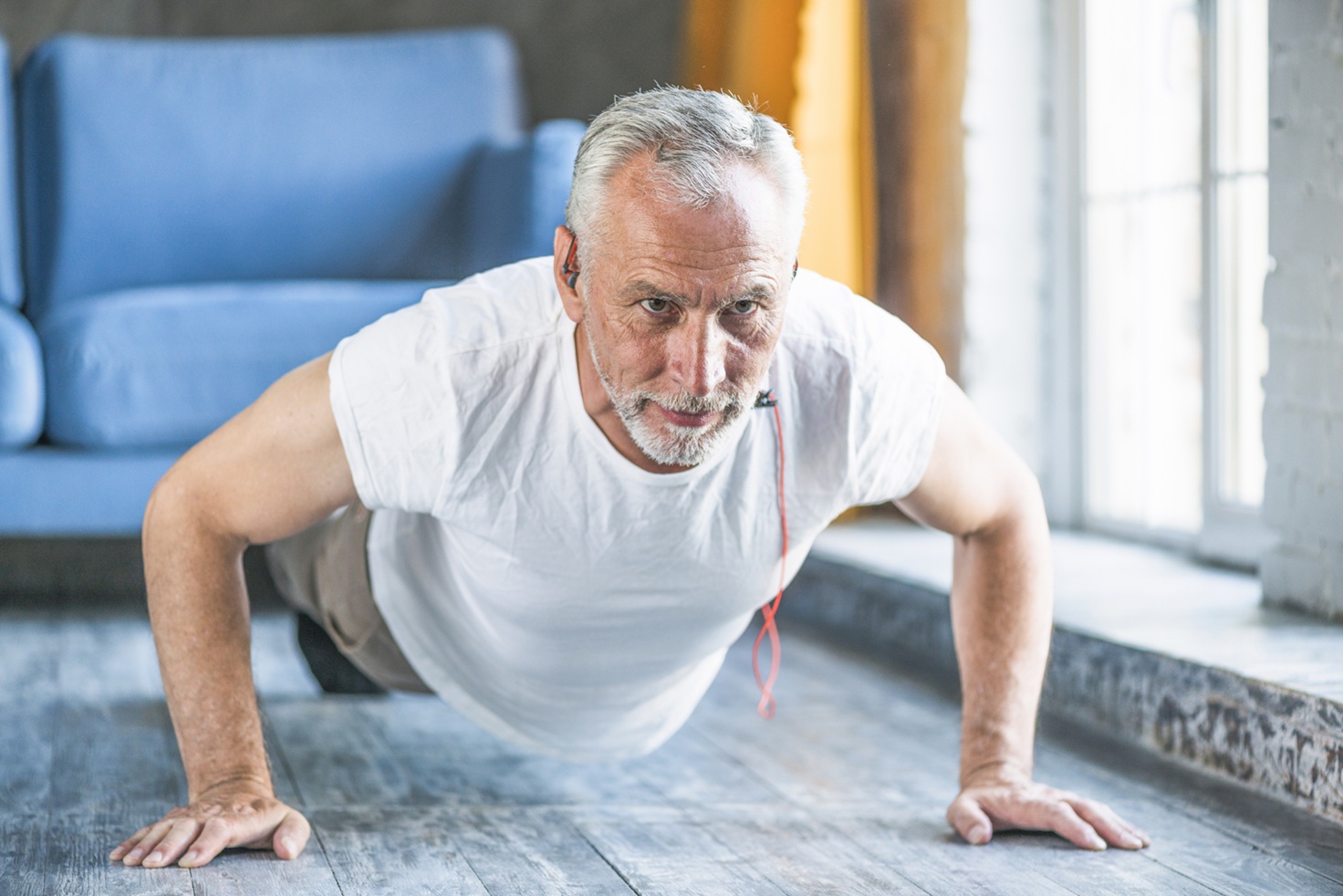If you are a man and have crossed the 40-year threshold, you have surely started noticing changes in your energy, mood… and in your sex life. Why? Because aging also brings with it the gradual decline of a fundamental hormone: testosterone.
Unfortunately, this connection between low testosterone and aging is often minimized… despite its significant effects.
However, a drop in testosterone levels can affect everything from your ability to build muscle to your emotional well-being. For this reason, this article offers you a professional guide, so you can identify the symptoms of these imbalances and learn about the most effective solutions available today.
Have you passed 40 and are unsure what is happening to you? Keep reading!
What is Testosterone and Why Does it Decrease with Age?
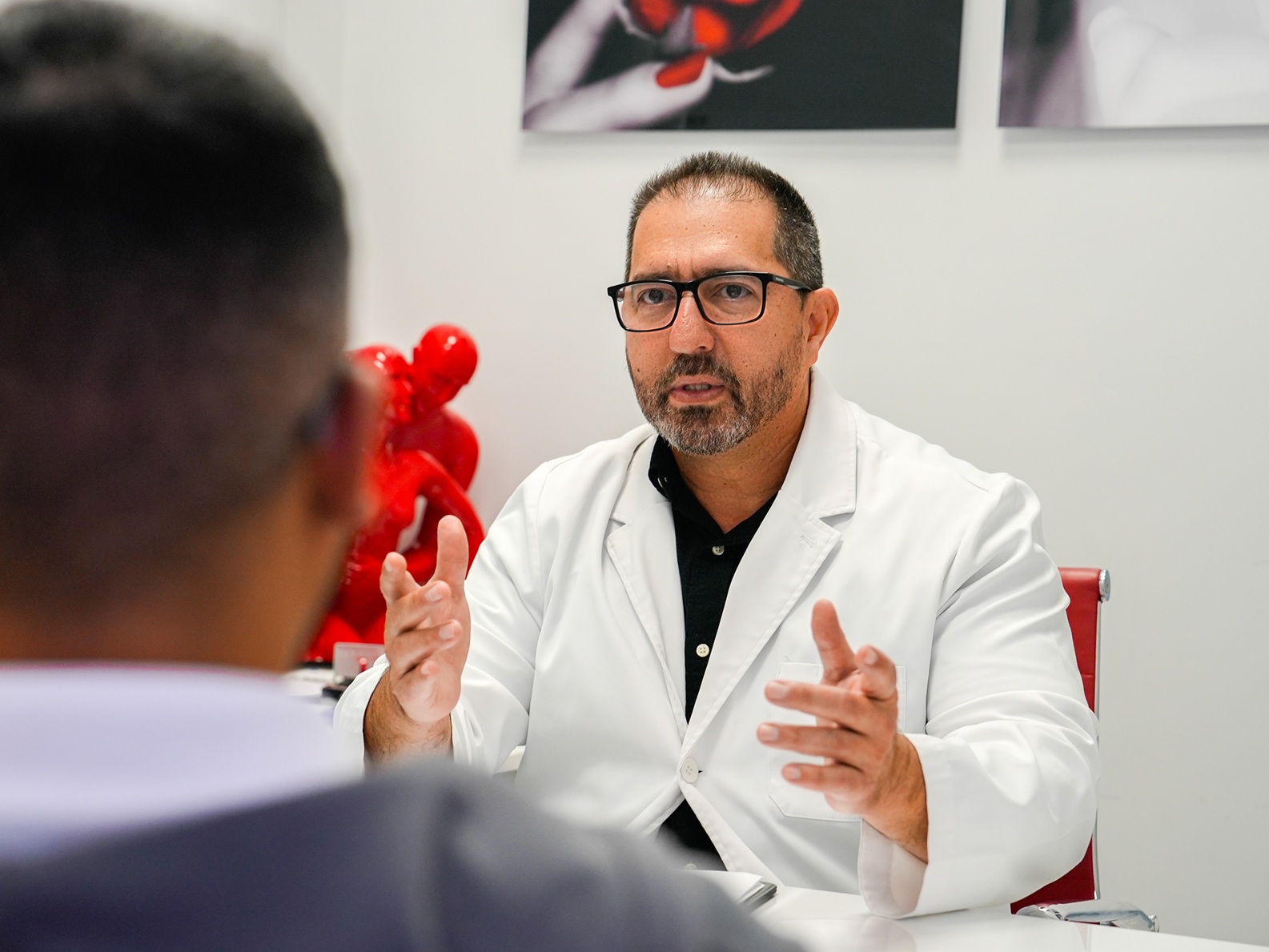
Testosterone has traditionally been known as the “male sex hormone,” but its role is far more complex. Therefore, before delving into the relationship between low testosterone and aging, it is essential to understand why its production begins to decline starting around age 30 or 40.
What is the role of testosterone in male energy and performance?
Beyond reproductive functions, testosterone acts as a regulator of multiple biological systems. Thus, when its levels are insufficient, basic bodily functions deteriorate, leading to a perception of accelerated aging:
- Body Composition: It is vital for preserving muscle mass, maintaining bone density, and controlling the accumulation of body fat.
- Metabolic Function: It directly regulates blood sugar and cholesterol levels, influencing how the body distributes energy.
- Cognition and Mood: Its optimal levels are linked to a better mood, greater motivation, and mental clarity.
What are the causes of male hormonal imbalance?
While the decline in testosterone with age is the main cause of this problem, it is not the only one. Certain lifestyle factors or underlying medical conditions can accelerate male hormonal imbalance, making symptoms more severe.
- Chronic Conditions: Diseases such as type 2 diabetes and high blood pressure are strongly correlated with lower testosterone production.
- Obesity and Adipose Tissue: Excess body fat is metabolically active, as it converts testosterone into estrogen, further exacerbating the hormonal deficit.
- Inadequate Lifestyle: Factors such as chronic stress, lack of quality sleep, and the use of certain medications can significantly decrease natural hormone production.
What are the Main Symptoms of Low Testosterone?
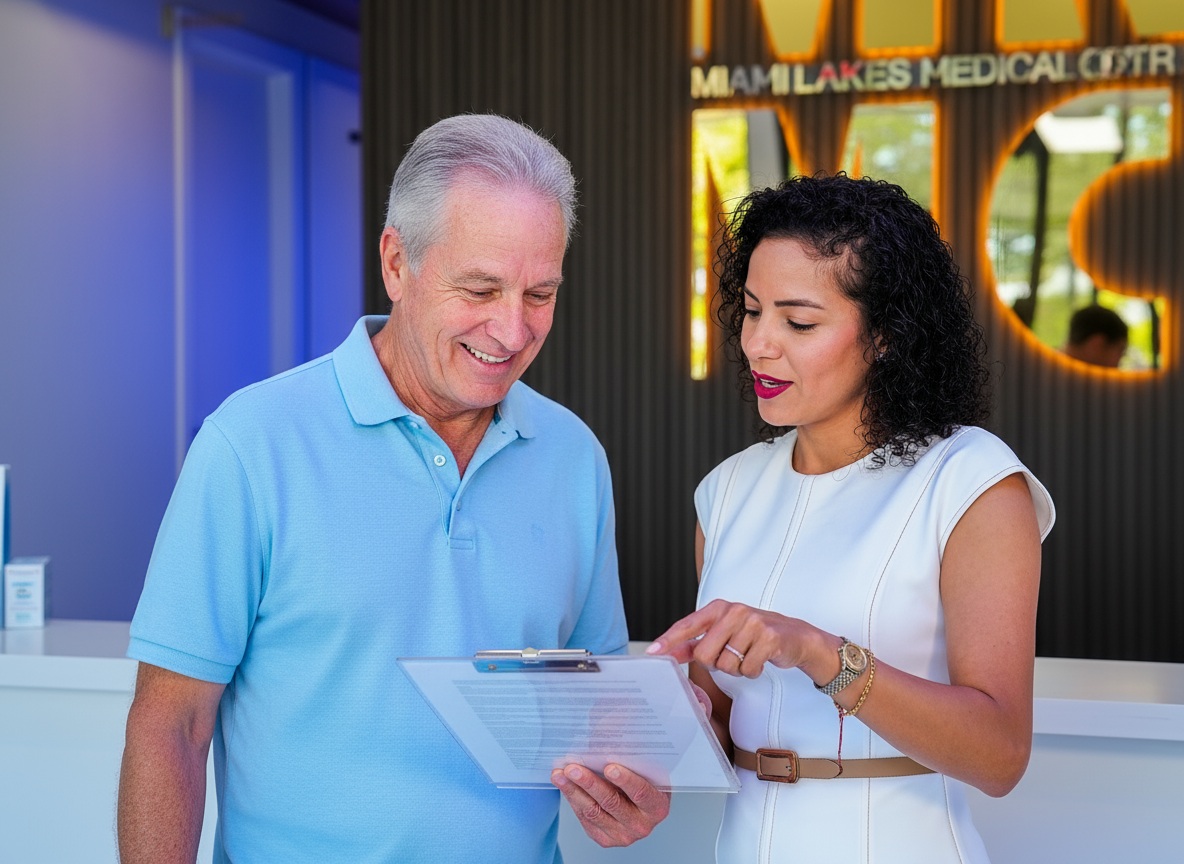
The biggest mistake you can make is attributing a lack of desire and irritability to simple “tiredness”; these are characteristic symptoms of the link between low testosterone and aging. Therefore, it is essential to be aware of these signs, as they are the key to accessing a specialized diagnosis.
Physical signs: Fatigue, muscle loss, and weight gain.
The most noticeable effects of low testosterone are those that modify your physical state and your daily stamina; making, for example, the gym and daily activities much more challenging. Therefore, you should be aware of:
- Chronic Fatigue: Feeling constantly exhausted and lacking energy, even after sufficient sleep or rest.
- Body Composition: Noticing a significant loss of strength and muscle mass, accompanied by an increase in body fat.
- Bone and Joint Health: Decreased bone density, increasing joint pain and vulnerability to fractures.
Impact on your mental well-being: Exhaustion and mood swings.
Testosterone is also a potent modulator of brain activity, and its scarcity can sabotage your mood and cognitive functions—an effect often confused with stress or depression. Thus, this relationship between low testosterone and aging can cause:
- Cognitive Decline: Difficulty maintaining focus, slowed thinking, and problems remembering information (brain fog).
- Emotional Dysregulation: Experiencing persistent sadness, irritability, or anxiety without a clear or apparent cause.
- Loss of Motivation: A noticeable reduction in initiative or interest in activities that were previously enjoyable.
Sexual consequences: Decreased libido and erectile problems.
Sexual symptoms are often the first to prompt men to seek help, as they have a direct impact on intimacy and self-esteem. Therefore, and due to the great sensitivity in the connection between low testosterone and aging, you should be alert to signs such as:
- Reduced Libido: A marked decrease in sexual desire or a notable lack of sexual fantasies.
- Erectile Problems (Erectile Dysfunction): Difficulty achieving or maintaining an erection firm enough for sexual activity.
- Other Indicators: Reduction in the quality of morning erections or a decrease in ejaculate volume.
What Treatment Options are Available for Low Testosterone?
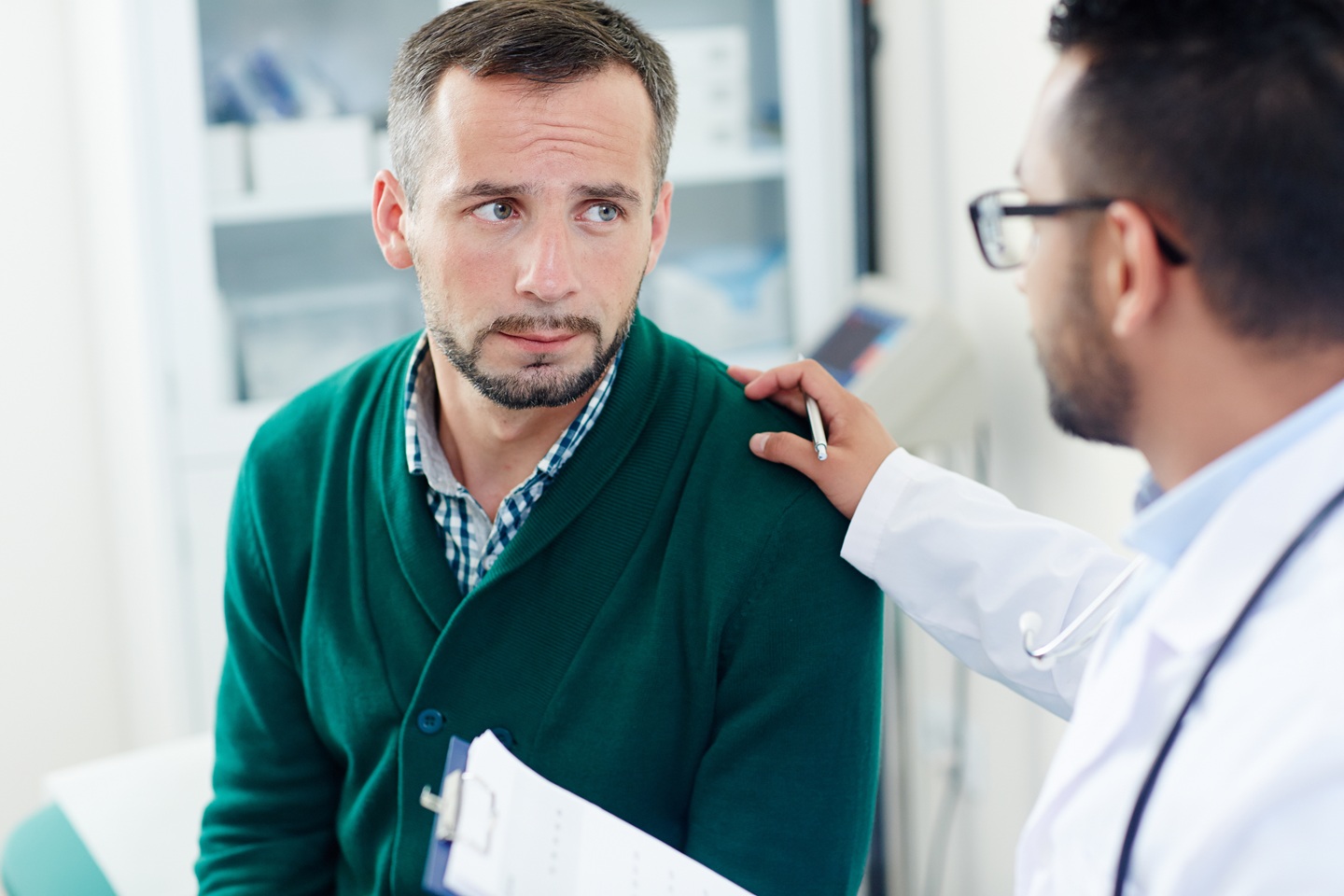
Once the link between low testosterone and aging is diagnosed, it is crucial to understand that effective solutions exist to reverse the symptoms mentioned above. Furthermore, effective treatment also optimizes your long-term health and vitality.
In this sense, current options range from lifestyle adjustments to advanced medical therapies:
Testosterone Replacement Therapy (TRT).
Testosterone Replacement Therapy (TRT) is one of the most effective tools for restoring hormone levels to an optimal range. Additionally, it is very safe and highly effective when administered and monitored by specialists.
- Flexible and Safe Administration: Therapy is provided through various methods (injections, gels, patches) to adapt to your lifestyle and ensure constant hormone release.
- Clinically Proven Benefits: Supervised TRT has the potential to dramatically relieve symptoms, improving bone and muscle density, increasing energy, and optimizing mood.
- Continuous Medical Monitoring: Safety lies in the constant monitoring of your hormone levels, hemoglobin, and other health markers, which guarantees precise and safe dose adjustment.
3 Natural Ways to Boost Testosterone Levels.
Although medical interventions are necessary for severe deficits, your lifestyle is one of the pillars of any treatment program for low testosterone and aging. Thus, these 3 natural ways to boost testosterone can complement therapy:
- Quality Sleep: Ensure 7 to 9 hours uninterrupted; testosterone is primarily produced during deep sleep.
- Anti-Inflammatory Diet: Prioritize healthy fats and minimize processed sugars to support hormone synthesis.
- Key Training: Engage in weightlifting or high-intensity interval training (HIIT) for the most effective natural stimulation.
Frequently Asked Questions about Low Testosterone and Aging.
1. What is testosterone and why does it decrease with age?
Testosterone plays a key role in male energy, muscle mass, bone health, and sexual function. Starting around age 30-40, its production begins to naturally decline, contributing to fatigue, mood swings, and loss of sexual desire.
2. What are the most common symptoms of low testosterone?
Signs can vary, but the most frequent include:
- Constant fatigue and lack of energy.
- Loss of muscle mass and increase in body fat.
- Erectile problems and decreased libido.
- Mood swings, irritability, or anxiety.
- Difficulty concentrating or memory problems.
3. What factors can accelerate the decline in testosterone?
In addition to aging, certain conditions and habits can worsen the hormonal deficit:
- Chronic diseases such as type 2 diabetes or hypertension.
- Obesity and excess adipose tissue.
- Chronic stress, lack of sleep, and some medications.
4. Does low testosterone affect sex life?
Yes, it can significantly reduce libido, affect the quality of erections, and decrease sexual satisfaction. Timely diagnosis and treatment can restore sexual function and improve self-esteem.
5. When should I consult a specialist?
If you experience persistent fatigue, loss of sexual desire, or decreased muscle strength, it is advisable to visit a male health specialist for a complete hormone test and receive a personalized treatment plan.
Low Testosterone and Aging: The IV Therapy at Miami Lakes Medical Center.
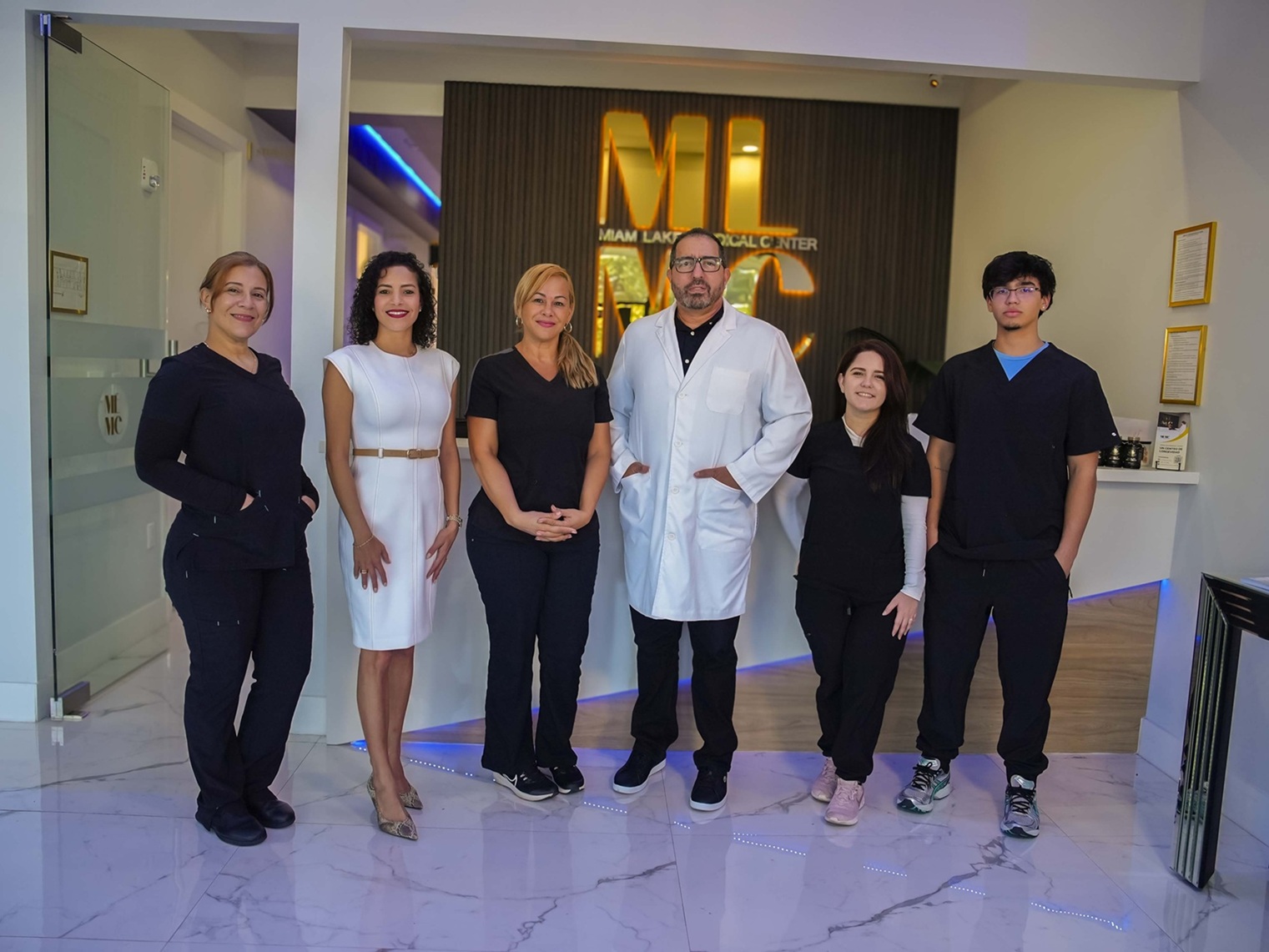
The connection between low testosterone and aging does not have to limit your energy, health, or confidence. At Miami Lakes Medical Center, we understand that every man is different, which is why we offer a personalized approach to restore your hormonal balance and optimize your overall well-being.
Furthermore, our specialists combine advanced medical treatments with complementary strategies that boost your performance. Thus, we offer IV Therapies designed for male vitality, such as Libido IV and boosters with Oral Tadalafil, which improve circulation, energy, and sexual desire.
To ensure the best results, we make our Pure Life 360 supplements available to you. Their clinical formulation is designed to provide extra support to your metabolism, boost your energy, and maximize natural testosterone production.
Don’t let low testosterone define your pace of life!
Rediscover your energy, motivation, and well-being with the guidance of the male health experts at Miami Lakes Medical Center.
Schedule your confidential consultation today and begin your journey toward a more active and fulfilling life.


